CONDITIONALS
What are conditionals in English grammar? Sometimes we call them 'if clauses'. They describe the result of something that might happen (in the present or future) or might have happened but didn't (in the past) . They are made using different English verb tenses.
There are four kinds:
NOW LET'S LEARN ABOUT THEM¡¡¡¡¡¡¡¡
The Zero Conditional
We can make a zero conditional sentence with two present simple
verbs (one in the 'if clause' and one in the 'main clause'):
- If + present simple, .... present simple.
This conditional is used when the result will always happen. So, if water reaches 100 degrees, it always boils. It's a fact. I'm talking in general, not about one particular situation. The result of the 'if clause' is always the main cluase.
The 'if' in this conditional can usually be replaced by 'when' without changing the meaning.
For example: If water reaches 100 degrees, it boils. (It is always true, there can't be a different result sometimes). If I eat peanuts, I am sick. (This is true only for me, maybe, not for everyone, but it's still true that I'm sick every time I eat peanuts)
Here are some more examples:
- If people eat too much, they get fat.
- If you touch a fire, you get burned.
- People die if they don't eat.
- You get water if you mix hydrogen and oxygen.
- Snakes bite if they are scared
- If babies are hungry, they cry
|
The First Conditional
The first conditional has the present simple after 'if', then the future simplein the other clause:
- if + present simple, ... will + infinitive
It's used to talk about things which might happen in the future. Of course, we can't know what will happen in the future, but this describes possible things, which could easily come true.
- If it rains, I won't go to the park.
- If I study today, I'll go to the party tonight.
- If I have enough money, I'll buy some new shoes.
- She'll be late if the train is delayed.
- She'll miss the bus if she doesn't leave soon.
- If I see her, I'll tell her.
First vs. Zero Conditional:

The first conditional describes a particular situation, whereas the zero conditional describes what happens in general.
For example (zero conditional): if you sit in the sun, you get burned (here I'm talking about every time a person sits in the sun - the burning is a natural consequence of the sitting)
But (first conditional): if you sit in the sun, you'll get burned (here I'm talking about what will happen today, another day might be different)
First vs. Second Conditional:

The first conditional describes things that I think are likely to happen in the future, whereas the second conditional talks about things that I don't think will really happen. It's subjective; it depends on my point of view.
For example (first conditional): If she studies harder, she'll pass the exam (I think it's possible she will study harder and so she'll pass)
But (second conditional): If she studied harder, she would pass the exam (I think that she won't study harder, or it's very unlikely, and so she won't pass)
The Second Conditional
The second conditional uses the past simple after if, then 'would' and the infinitive:
- if + past simple, ...would + infinitive
(We can use 'were' instead of 'was' with 'I' and 'he/she/it'. This is mostly done in formal writing).
It has two uses.
First, we can use it to talk about things in the future that are probably not going to be true. Maybe I'm imagining some dream for example.
- If I won the lottery, I would buy a big house.(I probably won't win the lottery)
- If I met the Queen of England, I would say hello.
- She would travel all over the world if she were rich.
- She would pass the exam if she ever studied.(She never studies, so this won't happen)
Second, we can use it to talk about something in the present which is impossible, because it's not true. Is that clear? Have a look at the examples:
- If I had his number, I would call him. (I don't have his number now, so it's impossible for me to call him).
- If I were you, I wouldn't go out with that man.
How is this different from the first conditional?
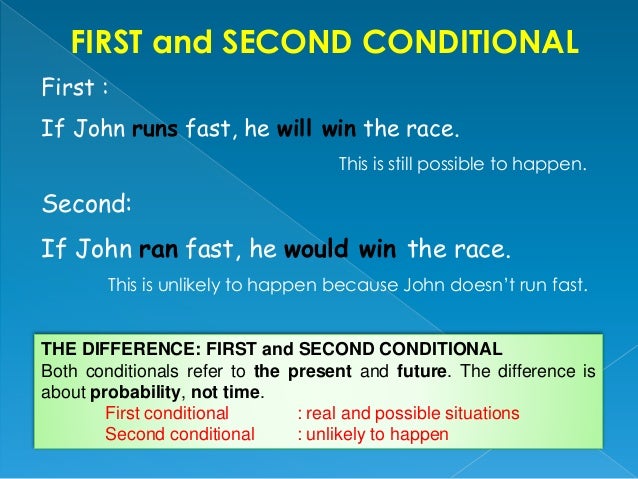
This kind of conditional sentence is different from the first conditional because this is a lot more unlikely.
For example (second conditional): If I had enough money I would buy a house with twenty bedrooms and a swimming pool (I'm probably not going to have this much money, it's just a dream, not very real)
But (first conditional): If I have enough money, I'll buy some new shoes (It's much more likely that I'll have enough money to buy some shoes)
The Third Conditional
We make the third conditional by using the past perfect after 'if' and then 'would have' and the past participle in the second part of the sentence:
- if + past perfect, ...would + have + past participle
It talks about the past. It's used to describe a situation that didn't happen, and to imagine the result of this situation.
- If she had studied, she would have passed the exam (but, really we know she didn't study and so she didn't pass)
- If I hadn't eaten so much, I wouldn't have felt sick (but I did eat a lot, and so I did feel sick).
- If we had taken a taxi, we wouldn't have missed the plane
- She wouldn't have been tired if she had gone to bed earlier
- She would have become a teacher if she had gone to university
- He would have been on time for the interview if he had left the house at nine
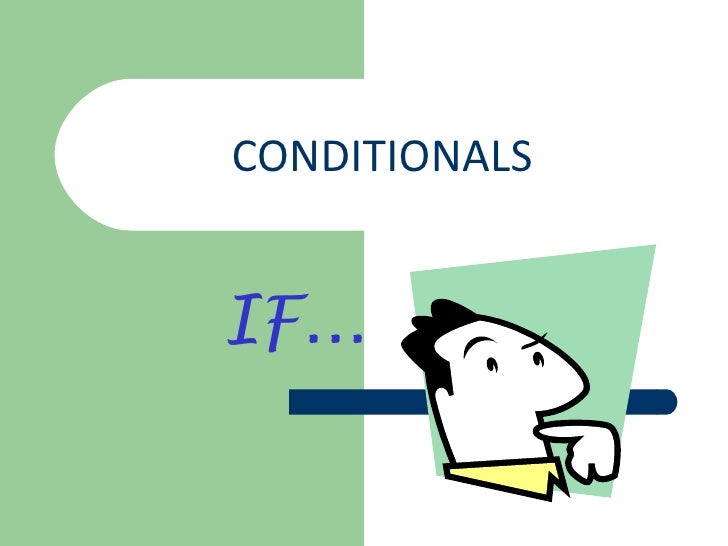


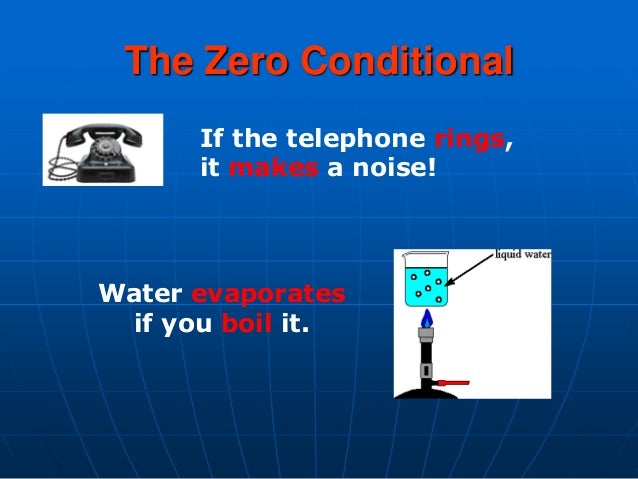
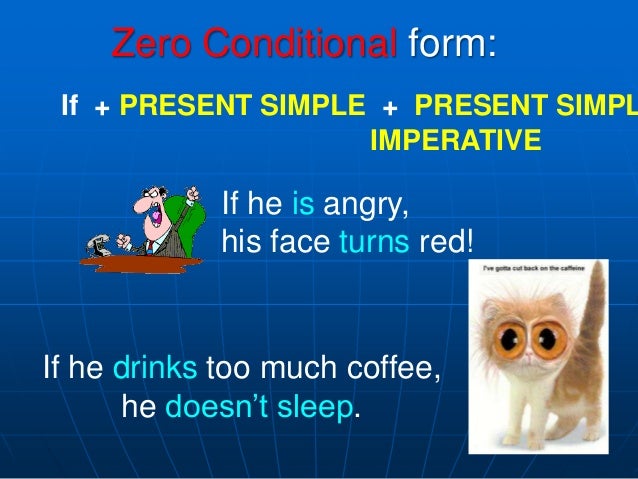






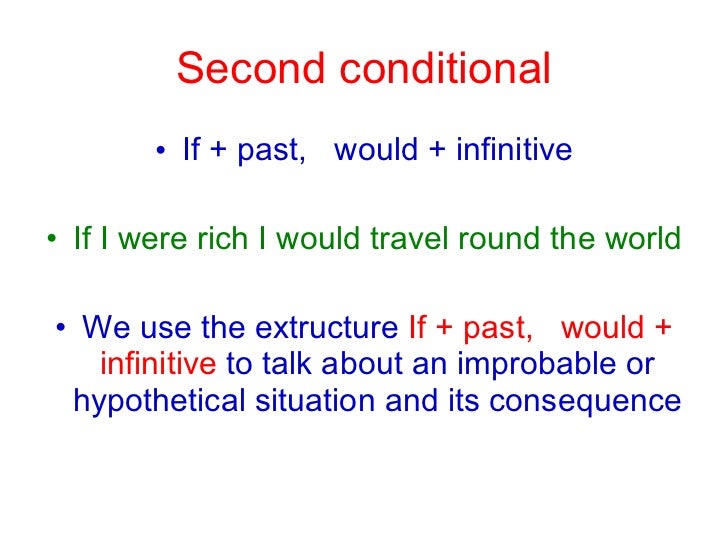



No hay comentarios:
Publicar un comentario